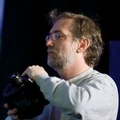(Subscribe to this discussion)
For years, the ability to detect phase distortion in musical signals has been a much debated question. Research has been carried out for the purpose of finding a suitable complex signal whose different frequency components could be changed in phase without altering the amplitude spectrum of the signal. Subjective listening tests have been made on a number of listeners in order to find the threshold of phase detection. the test was carried out with high-fidelity headphones and high-fidelity loudspeakers in a semi-reverberant room. It is proven experimentally that phase detection increases in a reverberant room and when using loudspeakers having poor transfer characteristics. It is demonstrated that the ear prefers the frequency content in the negative pressure transient fronts. This demonstrates the importance of absolute phase, for which reason there should be standardization of phase conditions from sound source to sound reproducer.
Authors:
Hansen, Villy; Madsen, Erik Rørbaek
Affiliation:
Bang & Olufsen Innovation Laboratory, Struer, Denmark
AES Convention:
44 (March 1973)
Paper Number:
C-1
Publication Date:
March 1, 1973
Click to purchase paper as a non-member or you can login as an AES member to see more options.
 Scott Dorsey |
Comment posted April 3, 2018 @ 16:25:46 UTC
(Comment permalink)
This is the first actual set of quantitative measurements of the audibility of group delay. While it's not the last word on the subject, it is a comprehensive and useful reference on how little group delay can be heard in different situations when using artificial waveforms specifically designed to make phase shifts more easily audible. This paper is seldom cited which is a shame because it is a landmark in the field that makes clear the basic dimensions of the problem. (Respond to this comment)
|
![]() To be notified of new comments on this paper you can
subscribe to this RSS feed.
Forum users should login to see additional options.
To be notified of new comments on this paper you can
subscribe to this RSS feed.
Forum users should login to see additional options.
If you are not yet an AES member and have something important to say about this paper then we urge you to join the AES today and make your voice heard. You can join online today by clicking here.
